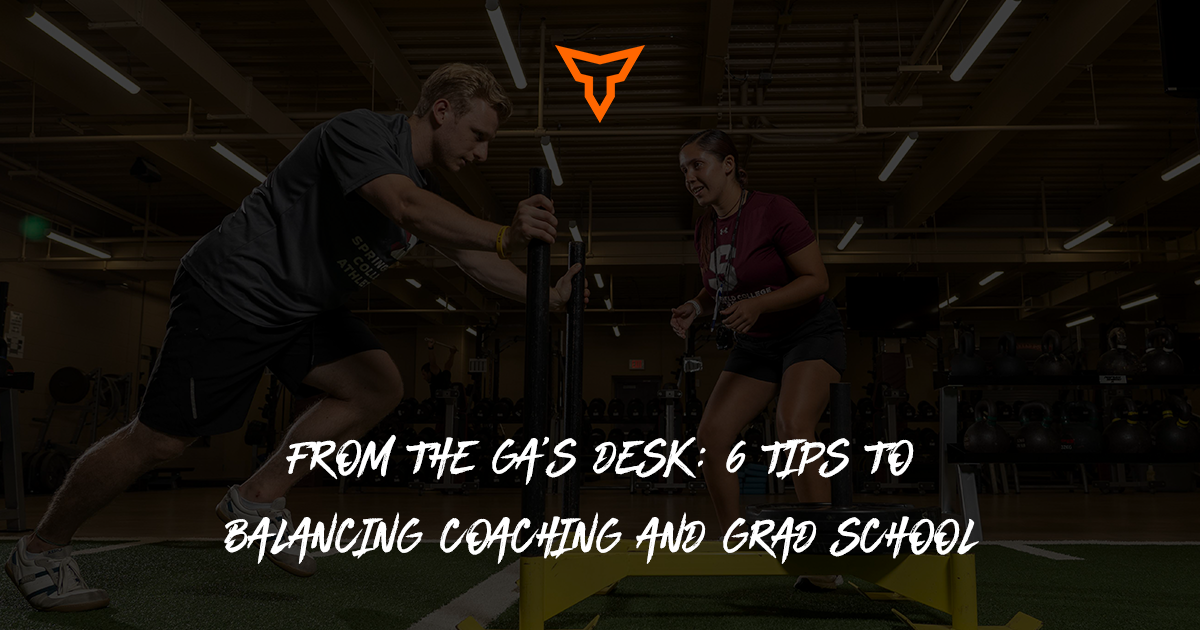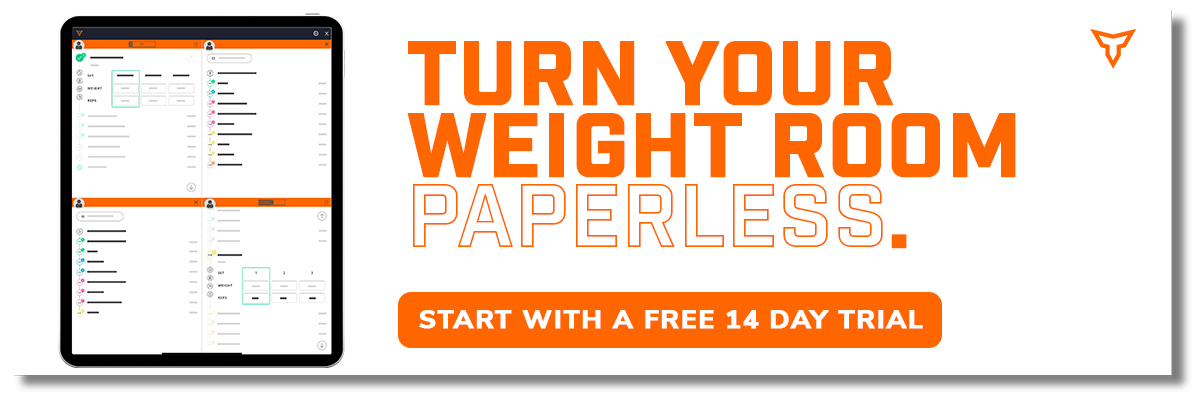Strategies That Secured My Raise as a Coach
Strength and Conditioning Coaches have been notoriously underpaid for most of the industry’s existence. That’s starting to change with the big business of revenue sports like football and basketball where they’re being paid more along the lines of assistant coaches and even some coordinators. But for most coaches I’ve interacted with, there’s usually a feeling of being undervalued in the athletic department, from a compensation standpoint.
That being said, I wanted to share three things I did to get a raise, and while they don’t include the strength-coach intimidating methods like shaking your boss down, they are long-term strategies to ensure you are in a position to be valued by your department, and thus, compensated accordingly.
Performance / Value
Without a doubt, you have to first work hard. I used the work ethic I had developed from being a student-athlete and a professional athlete. My experience as an athlete taught me that if you want to excel on the field, court, pool, or track, you HAVE to outwork other athletes if you want to succeed and win consistently. I would also add you have to work smart, which means being efficient and proficient in your job duties. I had to be constantly learning and growing to maximize my potential.
As a professional, all these traits transfer from being an athlete. Opportunities to do professional development are everywhere IF you are looking. Getting another degree or certification can be something that adds to your resume and credentials. When you can do more than your job description, you are bringing more value to your employer. Michael Alden, who was one of my previous athletic directors, looked for employees who could operate above the level of their job description. People who continuously say, “that’s not my job!” rarely come to mind for raises when additional funding comes around.
Communication
Communication is important no matter what stage of life you’re in. If you were an athlete, you had to communicate with your teammates during practice and competition; you had to communicate with your coaches and athletic trainers, and other support staff. As an athlete, it was common to hear from coaches about the importance of your body language and what you’re communicating with it. When I made the transition from being an athlete to being a coach, I had to learn to use those same skills in a different environment.
Pro tip: If you’re still a student-athlete or in a position of taking courses/getting mentored, take advantage of learning written communication (emails especially) because as a professional you will need it along with verbal communication.
Now that I’m an administrator, communication is more important than ever. I find myself constantly learning and re-learning the best ways to communicate with my superiors and subordinates, as well as my peers. Michael Alden taught me people get raises by how well they communicate in meetings. I know many strength and conditioning coaches may not understand it, yet, but this is very true from my experience in my current role. As a strength and conditioning coach you can be a great communicator to your athletes on the weight room floor but that will not have as much of an impact on you getting a raise as how you carry yourself in staff meetings and athletic department meetings.
Unfortunately, many people do not know how to evaluate a strength and conditioning coach based on their skill qualities and professional expertise. I have found people to have an opinion on how good a strength and conditioning coach is based on either their respective sports team’s record or how nice they are in the hallways.
Other Job Opportunities/ Leverage
Even though I have talked about performance and communication being important to getting a raise I don’t believe those are the MOST important factors (based on my personal experience). To be honest, the majority of the times I got a raise was because I got another job offer. Many supervisors have told me to not use another opportunity as leverage but this seems to be the main thing that worked for me. However, I am not suggesting that you go out and get job offers to get a raise! My job opportunities happened organically and were the result of my reputation and networking.
I do believe in meeting as many people in the profession as possible, and I’ve tried to instill that in young coaches I’ve worked with. I’ve always worked hard to stay in contact with people I’ve met and to operate with good character so that I had a good reputation. I think you have to be a good communicator and a hard worker to be in a position to receive a raise when the time comes. I also think you should be having these conversations with your supervisors about what your goals and intentions are - it shouldn’t be a surprise to the leaders in your organization if you get an opportunity to achieve those aspirations.
One note on this: if you are going to leverage a job offer to get a raise at your current organization, you MUST be willing to take that job offer if you don’t get the raise. If not, it puts you in a difficult position of accepting the job offer you weren’t actually intending to take; OR it leaves you in a position where you tried to leverage your way to a raise and failed but stayed with the organization. It may leave a bad taste in people’s mouths and will leave you with no leverage in the future because they know you want to stay.
Finally, do not compare yourself or your journey to anyone else’s. Always maximize your opportunities and your potential and good things will happen for you. I have never chased another job for the money but I have chased another job for the experience and then the money followed. The most important advice I can give is to do what you love for the experience, not for the money. I won’t lie though, the money sure is nice, especially when it provides some comfort while working in one of the toughest professions!
Subscribe to our blog
Subscribe to receive the latest blog posts to your inbox every week.
Related posts

From the GA's Desk: 6 Tips to Balancing Coaching and Grad School

5 Steps to Building a Successful Internship Program


